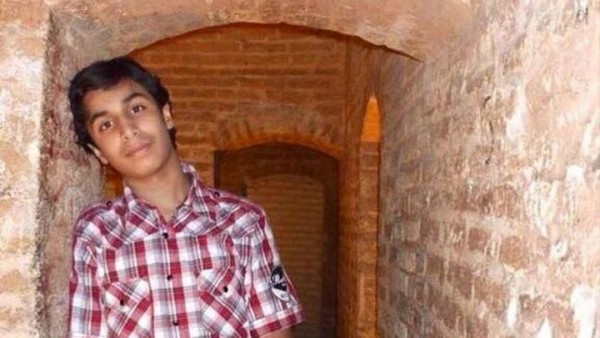
Sentenced to death for taking part in protests against Saudi Arabia’s monarchy, a 21-year-old Shiite man faces execution on Thursday. His sentence has provoked particular outcry as the Saudi kingdom takes the helm of the UN’s Human Rights Council.
In Saudi Arabia – which, paradoxically, was recently elected chair of the UN Human Rights Council – protesting against the government is an act punishable by death.
Ali al-Nimr was only 17 years old when he was arrested in 2012 for taking part in Arab Spring demonstrations in Qatif, a district in Saudi Arabia’s Eastern Province.
Authorities accused the young man – a nephew of prominent Shiite cleric Sheikh Nimr al-Nimr, who was himself sentenced to death in October 2014 – of belonging to a criminal organisation and attacking police. Nimr was sentenced to death in May and, after losing his final appeal last week, can now be executed at any time.
Nimr al-Nimr was a leading force in organising demonstrations in Eastern Province in 2011.
Death by ‘beheading and crucifixion’
A group of independent UN human rights experts issued a statement on Tuesday urging Saudi Arabia to halt Nimr’s execution, saying that the young man was coerced into giving a confession after he was “reportedly tortured and subjected to ill-treatment”.
The UN experts added that Nimr “did not receive a fair trial and his lawyer was not allowed to assist him properly and was prevented from accessing his case file”. They also said that they had reliable information indicating that the appeals process had been carried out with “a complete disregard for international standards”.
“Any judgment imposing the death penalty upon persons who were children at the time of the offence, and their execution, is incompatible with Saudi Arabia’s international obligations,” the experts said.
Nimr’s lawyers, who believe that his sentencing is linked to his uncle’s activism, fear that he will be executed on Thursday, which marks the start of the Muslim holiday Eid al-Adha. According to media reports, the young man will be beheaded and his body crucified in public view. The barbaric practice is reminiscent of the Islamic State (IS) group’s methods in the northern Syrian village of Raqqa.
Saudi Arabia and human rights
Nimr’s case came as Saudi Arabia’s ambassador to the United Nations, Faisal bin Hassan Trad, was named head of the UN’s Human Rights Council. The decision has already shocked rights groups, which have pointed to the kingdom’s poor track record on human rights issues.
According to Amnesty International’s most recent report, Saudi Arabia executed “on average one person every two days” between August 2014 and June 2015. The rights group has also accused the Sunni-ruled country, which enforces sharia law, of restricting freedoms of expression, association and assembly, as well as discriminating against the country’s Shiite minority and carrying out arbitrary arrests.
Despite mounting calls to halt Nimr’s execution, it is unlikely that Saudi Arabia will listen. The kingdom has already said in the past that it “has the independence and will not accept any interference with [its judicial system] or internal affairs of any other sort”.
FRANCE24/AFP
We at Ya Libnan encourage and welcome an open exchange of ideas on this story’s topic, but we kindly ask all participants to follow our guidelines for respecting community standards. Personal attacks, inappropriate language, and off-topic comments may be removed, and comment privileges revoked .

Leave a Reply
You must be logged in to post a comment.